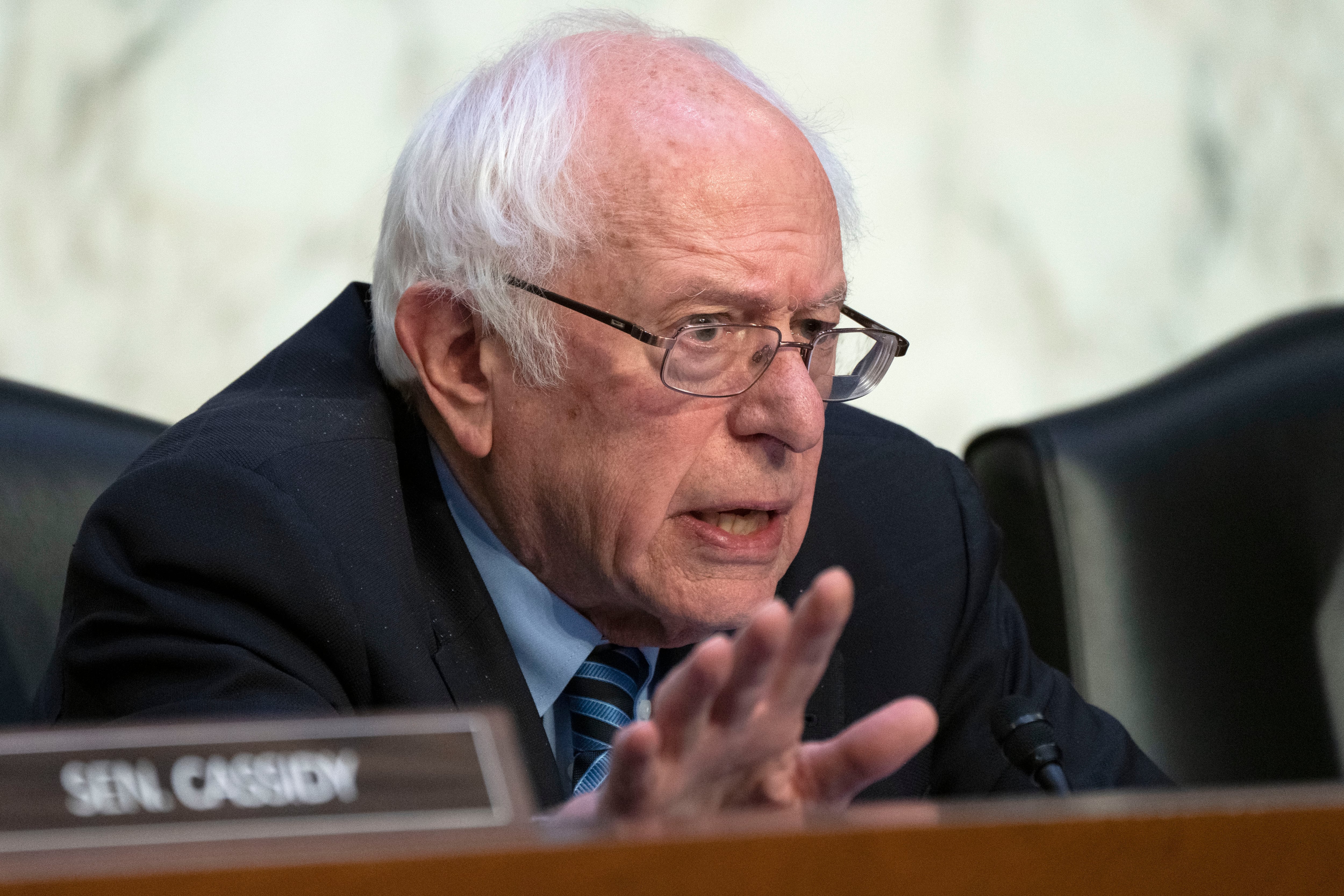The 40-hour workweek has been standard in the U.S. for more than eight decades. Now some members of Congress want to give hourly workers an extra day off.
Sen. Bernie Sanders, the far-left independent from Vermont, this week introduced a bill that would shorten to 32 hours the amount of time many Americans can work each week before they’re owed overtime.
Given advances in automation, robotics and artificial intelligence, Sanders says U.S. companies can afford to give employees more time off without cutting their pay and benefits.
Critics say a mandated shorter week would force many companies to hire additional workers or lose productivity.
Here’s what to know about the issue:
What would Sanders’ proposal do?
The bill Sanders introduced Wednesday in the Senate would reduce the standard workweek from 40 hours to 32 hours. Employers would be prohibited from reducing their workers’ pay and benefits to match their lost hours.
That means people who currently work Monday through Friday, eight hours per day, would get to add an extra day to their weekend. Workers eligible for overtime would get paid extra for exceeding 32 hours in a week.
Sanders says the worktime reductions would be phased in over four years. He held a hearing on the proposal Thursday in the Senate Health, Education, Labor and Pensions Committee, of which Sanders is the chairman.
How would a shorter workweek affect employees and productivity?
One recent study of British companies that agreed to adopt a 32-hour workweek concluded that employees came to work less stressed and more focused while revenues remained steady or increased.
In 2022, a team of university researchers and the nonprofit 4 Day Week Global enlisted 61 companies to reduce working hours for six months without cutting wages. Afterward, 71% of the 2,900 workers said they were less burned out and nearly half reported being more satisfied with their jobs.
Meanwhile, 24 of the participating companies reported revenue growth of more than 34% over the prior six months. Nearly two dozen others saw a smaller increase.
“The majority of employees register an increase in their productivity over the trial. They are more energized, focused and capable,” Juliet Shor, a Boston College sociology professor and a lead researcher on the UK study, told Sanders’ Senate committee.
Critics say a 32-hour workweek might work for companies where employees spend most of their time at computers or in meetings, but could be disastrous for production at manufacturing plants that need hands-on workers to keep assembly lines running.
“These are concepts that have consequences,” Roger King, of the HR Policy Association, which represents corporate human resource officers, told the Senate committee. “It just doesn’t work in many industries.”
What’s the response in Washington?
With considerable opposition from Republicans, and potentially some Democrats, don’t expect Sanders’ proposal to get very far in the Senate. A companion bill by Democratic Rep. Mark Takano of California is likely doomed in the GOP-controlled House.
GOP Sen. Bill Cassidy of Louisiana said paying workers the same wages for fewer hours would force employers to pass the cost of hiring more workers along to consumers.
“It would threaten millions of small businesses operating on a razor-thin margin because they’re unable to find enough workers,” said Cassidy, the ranking Republican on the committee. “Now they’ve got the same workers, but only for three-quarters of the time. And they have to hire more.”
Sanders has used his platform as the committee’s chairman to showcase legislation aimed at holding big corporations more accountable to workers. He blamed greedy executives for pocketing extra profits as technology has boosted worker productivity.
“Do we continue the trend that technology only benefits the people on top, or do we demand that these transformational changes benefit working people?” Sanders said. “And one of the benefits must be a lower workweek, a 32-hour workweek.”
How did we decide a 40-hour workweek was the standard?
The Fair Labor Standards Act, signed into law by President Franklin D. Roosevelt in 1938, restricted child labor and imposed other workplace protections that included limiting the workweek to 44 hours. The law was amended two years later to make it a 40-hour week.
The landmark law followed a century of labor-union efforts seeking protections for the many overworked people in the U.S., said Tejasvi Nagaraja, a labor historian at Cornell University’s School of Industry and Labor Relations.
“The issue of time was always as important, or more important, than money for labor unions and labor advocates,” Nagaraja said.
In the 1830s, coal miners and textile workers began pushing back against workdays of up to 14 hours. After the Civil War, the abolition of slavery caused those in the U.S. to take a fresh look at workers’ rights. Unions rallied around the slogan: “Eight hours for work, eight hours for rest, eight hours for what you will.”
The federal government took tentative steps toward limiting working time. In 1869, President Ulysses S. Grant ordered an eight-hour workday for government employees. In 1916, Congress mandated the same for railroad workers.
Other reforms came from private industry. In 1926, Henry Ford adopted a 40-hour week for his automobile assembly workers more than a decade before Congress mandated it.
Ford wrote: “It is high time to rid ourselves of the notion that leisure for workmen is either lost time or a class privilege.”









